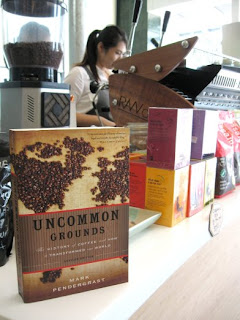The feds aren't the first to raise the possibility; the EU Commission began investigations several months earlier.
A notable sci-fi author thinks it's more of a case where publishers are hopping onto a bigger shinier bandwagon - assuming that the US DoJ is wrong about these firms' active collusion. But: "Again, maybe they all did actively collude, in which case, whoops, guys. Stop being idiots."
Charles Cooper, blogging at CNet, cheers the Feds, blaming the late Steve Jobs for masterminding the 'controversial' agency model to "kneecap" Amazon. A Businessweek report on the matter seems to concur with Cooper that the result could mean more affordable e-book prices. But I doubt the fight - if it goes ahead - will look like the titanic struggle the media appears to be depicting.
I see this whole thing as a desperate scramble by these big publishers to retain as much of the status quo as possible, before the Titanic that is traditional publishing finally slips under the waves of e-publishing - or so it is thought.
Maybe outsourcing the sales and distribution would mean more savings (and profit), but at what cost? Would the probable legal wrangles like this one be worth the trouble? Would it mean keeping themselves afloat in the midst of the digital storm or merely delaying the inevitable?
Like I said before, it's no longer business as usual for publishers. It's not enough to throw themselves at the feet of either Amazon or Apple in their attempt to sell as many books as they can.
One way out could involve publishers taking their books to other distribution channels, or sell their own books. Why not? Is it such a big deal? I bet lots of other smaller publishers do that. That way, they can set the prices and charge extra for shipping, all within their sphere of influence.
The named publishers are big, but it may not a good idea to stay big and do things big anymore. And how far can the "biggering" of a business go before it becomes unsustainable?
That's why many prehistoric species aren't with us today.
With smaller, more numerous publishers, we might see the industry return to what they're supposed to do: vet and produce good books for readers, and take the occasional risk with artsy, experimental works. With a smaller overhead, they can set better prices.
And who says books have to be sold in bookshops? With the advent of independent cafés arrrhmmArtisanRoastWhiskRawCoffeeFatSpoonarrrhmm, for instance, authors or publishers can have a few copies displayed in the counters or shoved into the free reads pile.
Books on culture? Central Market, maybe. Funky, thoughtful art/culture/lifestyle mags? Indie cafés, airports or maybe international book fests. Travelogues and books on bicycle tours? Bicycle shops, naturally. In exchange, premise owners get a cut of the sales. Take your books to your market, dear authors. Don't make your market come to you.
And it goes without saying that a pool with many, many good publishers will also mean good things for people in the industry...
Categories:
Book Blab

0 comments:
Post a Comment
Got something to say? Great!